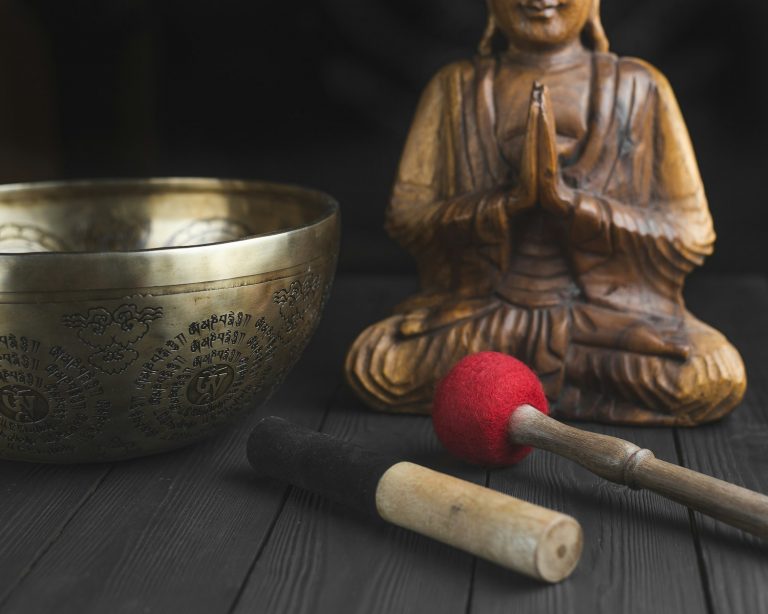Definition
Meditation is a practice that involves focusing the mind to achieve a state of heightened awareness and inner calm. It is often used to promote relaxation, develop concentration, and enhance emotional well-being. Originating from ancient spiritual traditions, meditation has been a fundamental aspect of various cultures for thousands of years, including those in India, China, and Japan. In these traditions, it is not only a tool for personal growth but also a means to connect with the spiritual realm. Over time, meditation has transcended its religious roots and has become a widely recognized and scientifically studied practice for improving mental and physical health in the modern world.
Benefits of Meditation
Meditation offers a wide array of physical, mental, and emotional benefits, making it a valuable practice for overall well-being. Physically, regular meditation has been shown to reduce stress levels and lower blood pressure. It can also improve sleep quality, enhance the immune system, and decrease chronic pain. A study published in the Journal of the American Medical Association found that mindfulness meditation can significantly reduce symptoms of anxiety, depression, and pain.
Mentally, meditation helps improve focus, concentration, and cognitive function. It promotes mental clarity and reduces the impact of distractions, enabling individuals to perform tasks more efficiently. Research from Harvard Medical School indicates that meditation can increase the thickness of the prefrontal cortex, the brain area responsible for decision-making, attention, and self-control.
Emotionally, meditation fosters a greater sense of inner peace and emotional stability. It helps practitioners develop a deeper understanding of their emotions and reactions, leading to improved emotional regulation. A study from Johns Hopkins University found that meditation programs can improve psychological stress and well-being. Additionally, meditation cultivates positive emotions such as compassion, empathy, and patience, which enhance interpersonal relationships and overall life satisfaction.
In summary, the benefits of meditation span across physical health, mental acuity, and emotional resilience. By incorporating meditation into daily routines, individuals can experience profound improvements in their quality of life, supported by extensive scientific research and centuries of traditional practice.
Types of Meditation
Meditation comes in various forms, each offering unique approaches to achieving a state of mindfulness and inner peace. Here are some of the most widely practiced types of meditation:
1. Mindfulness Meditation:
Mindfulness meditation involves focusing on the present moment, observing thoughts and sensations without judgment. This practice helps cultivate awareness and acceptance, reducing stress and improving overall mental health. Originating from Buddhist traditions, mindfulness meditation is now widely used in therapeutic settings and has been shown to enhance emotional regulation and cognitive function.
2. Transcendental Meditation (TM):
Transcendental Meditation is a technique involving the silent repetition of a specific mantra. TM aims to transcend ordinary thought processes, leading to a state of deep relaxation and heightened awareness. This form of meditation has been extensively studied, with research showing benefits such as reduced anxiety, lowered blood pressure, and improved cardiovascular health. TM offers a simple and effective method to achieve mental tranquility and physical relaxation.
3. Guided Meditation:
Guided meditation involves following a narrator’s instructions, often accompanied by soothing music or nature sounds. This type of meditation can focus on various goals, such as relaxation, stress relief, or achieving specific personal or spiritual insights. Guided meditation is particularly beneficial for beginners, as the structured format helps maintain focus and direction.
4. Loving-Kindness Meditation (Metta):
Loving-Kindness Meditation, or Metta, involves directing well-wishes and positive thoughts towards oneself and others. Practitioners start with themselves and gradually extend these feelings to friends, family, and even adversaries. This practice fosters compassion, empathy, and emotional resilience, enhancing interpersonal relationships and overall emotional well-being.
5. Body Scan Meditation:
Body Scan Meditation focuses on systematically bringing awareness to different parts of the body. This technique helps release physical tension and promotes relaxation. By paying attention to bodily sensations, practitioners can develop a deeper connection between mind and body, reducing stress and improving physical awareness.
Each type of meditation offers distinct benefits, allowing individuals to choose the practice that best suits their personal needs and preferences. Whether seeking stress relief, emotional balance, or spiritual growth, there is a meditation technique that can support their journey.
How to Meditate
Meditation is a practice that can be easily incorporated into daily life with a few basic steps. Here’s a guide to help you get started:
Basic Steps to Start Meditating:
Find a Quiet Space: Choose a calm and quiet place where you won’t be disturbed.
Get Comfortable: Sit or lie down in a comfortable position. You can use a chair, cushion, or even the floor.
Close Your Eyes: Gently close your eyes to help focus inward.
Breathe Naturally: Allow your breathing to become natural and relaxed. Focus on the sensation of each breath.
Focus Your Attention: Concentrate on a specific point, such as your breath, a mantra, or a visualization. If your mind wanders, gently bring your focus back to your chosen point of attention.
Tips for Beginners:
Start Small: Begin with just a few minutes of meditation each day and gradually increase the duration as you become more comfortable.
Be Consistent: Try to meditate at the same time each day to build a routine.
Stay Patient: It’s normal for your mind to wander. Simply acknowledge the distractions and gently return your focus.
Use Guided Meditations: If you’re new to meditation, guided meditations can provide helpful structure and support.
Common Challenges and How to Overcome Them:
Restlessness: Feeling fidgety is common. To manage this, start with shorter sessions and gradually increase the time as you become more accustomed to sitting still.
Mind Wandering: It’s natural for thoughts to arise during meditation. When this happens, gently guide your attention back to your focus point without judgment.
Doubt: Beginners often question if they are meditating correctly. Remember, there is no “right” way to meditate. The key is to practice regularly and find what works best for you.
Lack of Time: Even a few minutes of meditation can be beneficial. Prioritize a short daily practice and gradually expand the duration when possible.
By following these steps and tips, beginners can develop a rewarding meditation practice, overcoming common challenges and experiencing the numerous benefits meditation has to offer.
Incorporating Meditation into Daily Life
Making meditation a regular habit can greatly enhance your well-being. Start by setting aside a specific time each day, such as in the morning or before bed, to practice meditation. Consistency is key, so try to meditate at the same time every day to build a routine. Integrate meditation into your daily activities by practicing mindfulness during routine tasks like eating, walking, or even commuting. Use reminders, such as setting an alarm or using a meditation app, to prompt you to take a few minutes for mindful breathing or a quick meditation session. Over time, these small steps can help make meditation a natural and beneficial part of your daily life.
Conclusion
Meditation offers numerous physical, mental, and emotional benefits, making it a valuable practice for enhancing overall well-being. By exploring different types of meditation, such as mindfulness, transcendental, and guided meditation, you can find the approach that best suits your needs. Starting with basic steps and gradually overcoming common challenges will help you develop a consistent practice. Incorporating meditation into your daily routine can lead to lasting positive changes. Begin your meditation journey today and experience the profound benefits it can bring to your life.





